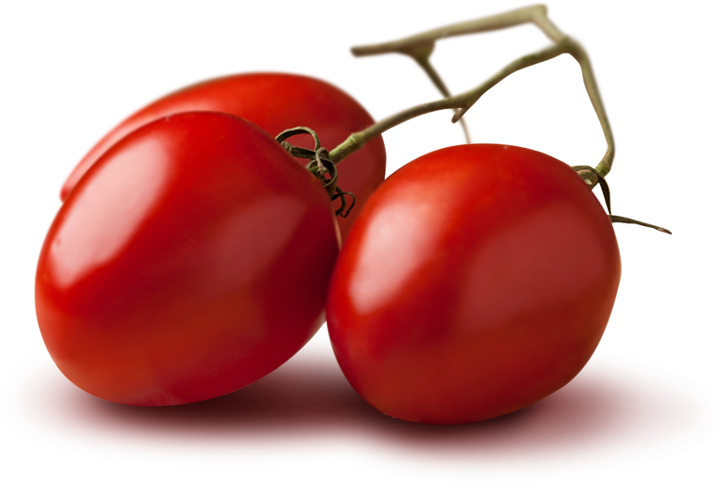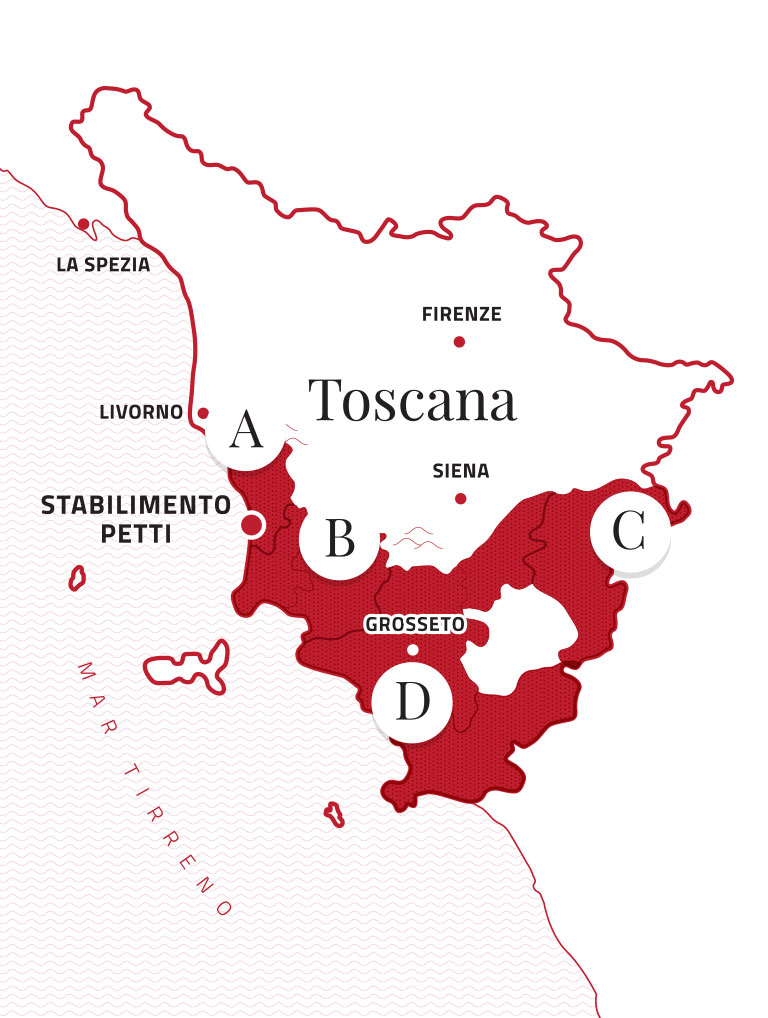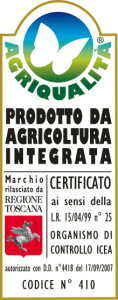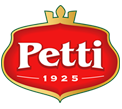Features of the Tuscan
industrial tomato

The cultivation is 99% transplanted, cultivating the seedlings from the month of April to the first / second week of June. The growing cycle varies between 90 days for early varieties and 120 days for the late varieties. The industrial tomato crops need to be irrigated frequently, because the tomato is composed of water for the 94% of its weight: Tuscan companies associated to ASPORT all use the techniques of drip irrigation (micro irrigation) through the hose (driplines) and this technique is combined to the fertigation, namely the administration of nutrients via the above-mentioned equipment.
The water used for irrigation comes from very deep aquifers through the use of artesian wells: the water samples are analyzed every 6 months resulting perfectly drinkable. The same agricultural techniques are also used for BIO / organic crops, obviously with the obligation to use only products approved by the European regulations. The plants of industrial tomatoes are excellent for crop procession, thus integrating perfectly into the agricultural landscape; besides, the tomato has a highly developed root system, of about 50 cm, and is perfectly suited to the mild and windy climate of Tuscany in different climatic conditions.
Tuscan terrain's features
Agricultural terrains in the Val di Cornia, Val di Chiana, Grosseto, Maremma, Siena’s and Pisa’s countrysides enjoy the benefits from their proximity to the sea and to the mountains. They are rich in minerals, such as phosphorus and potassium, and can boast the use of the deepest aquifers for the irrigation of the fields, thanks to the artesian wells. These areas have clay-sandy soils with high permeability, ideal for preventing water stagnations and, consequently, the proliferation of mold.

A – Campagne Pisane. Along the Arno river are rich and loamy soils
B – Val di Cornia. Mineral wealth for our production
C – Val di Chiana e Campagne Senesi. a nature wonder accompanied by the river Chiani
D – Maremma e Grosseto. The proximity to the sea makes unique our tomato crops
ASPORT
ASPORT is an organization of fruit and vegetable producers established in 1971 with an operating area that stretches across the Tuscan territory and also in other regions of Italy. For over 40 years a leading association in the cultivation of industrial tomatoes, now it has more than 600 farms including 7 cooperatives. The ASPORT ensures jobs and income for member companies that produce respecting the environment and the consumers’ health, thanks to a careful variety selection aimed at obtaining good production, in terms of quantity and quality, and the application of rules for integrated and organic production.
Production process
When reaching the right degree of ripeness the tomato is gathered in the fields through self-propelled harvesting machines equipped with optical switch. From there they are loaded on trucks dedicated to the transportation to the Petti plant. Within 6 hours from the harvest the tomato is processed in the plant of Venturina Terme, in the province of Livorno. Here follow various stages of production, in particular the tomato is processed at low temperature. Thanks to this unique method the products of Petti keep intact the bright red color and the taste of freshly harvested tomato.
Agriqualità
The products branded Petti are certified by the Tuscany Region through the "Agriqualità" brand, identifying and promoting agri-food products cultivated with integrated farming techniques, or with agricultural production methods compatible with environmental protection requirements and with the maintenance of the countryside. This certification therefore certifies and guarantees clearly and unequivocally that the Petti products are made with 100% Tuscan tomato, as the mark of the winged Pegasus, coat of arms of the Tuscany Region, is reminding on each label. The line Petti is the only line among the preserved products in the large scale Retail in Italy that can boast a certification mark of the entire production chain issued by the Tuscany Region, which stands out for its uncontaminated territories and for its agri-food production of high quality recognized worldwide. This label appears on all product packaging, a further guarantee for consumers on the traceability of the entire supply chain.





